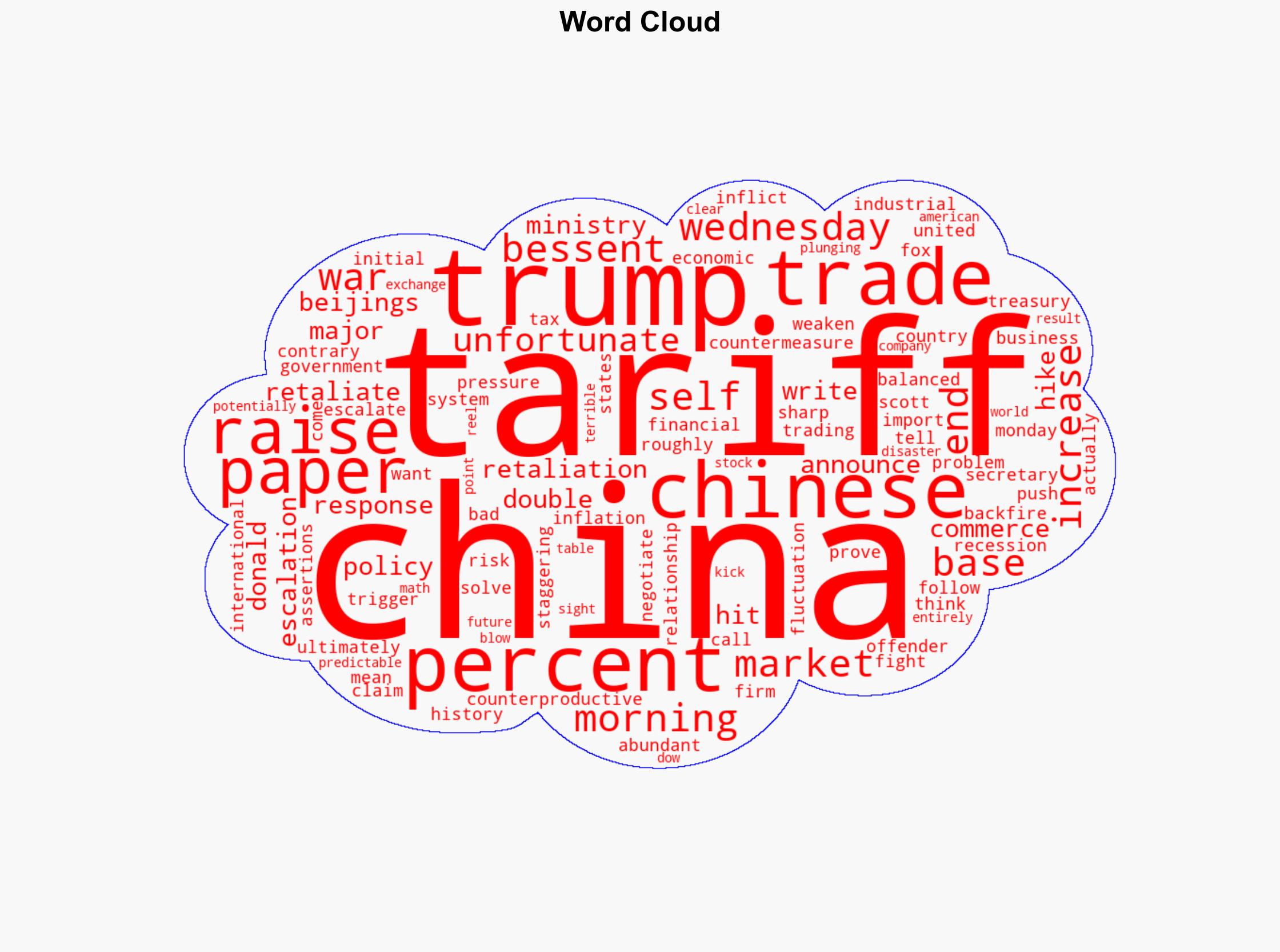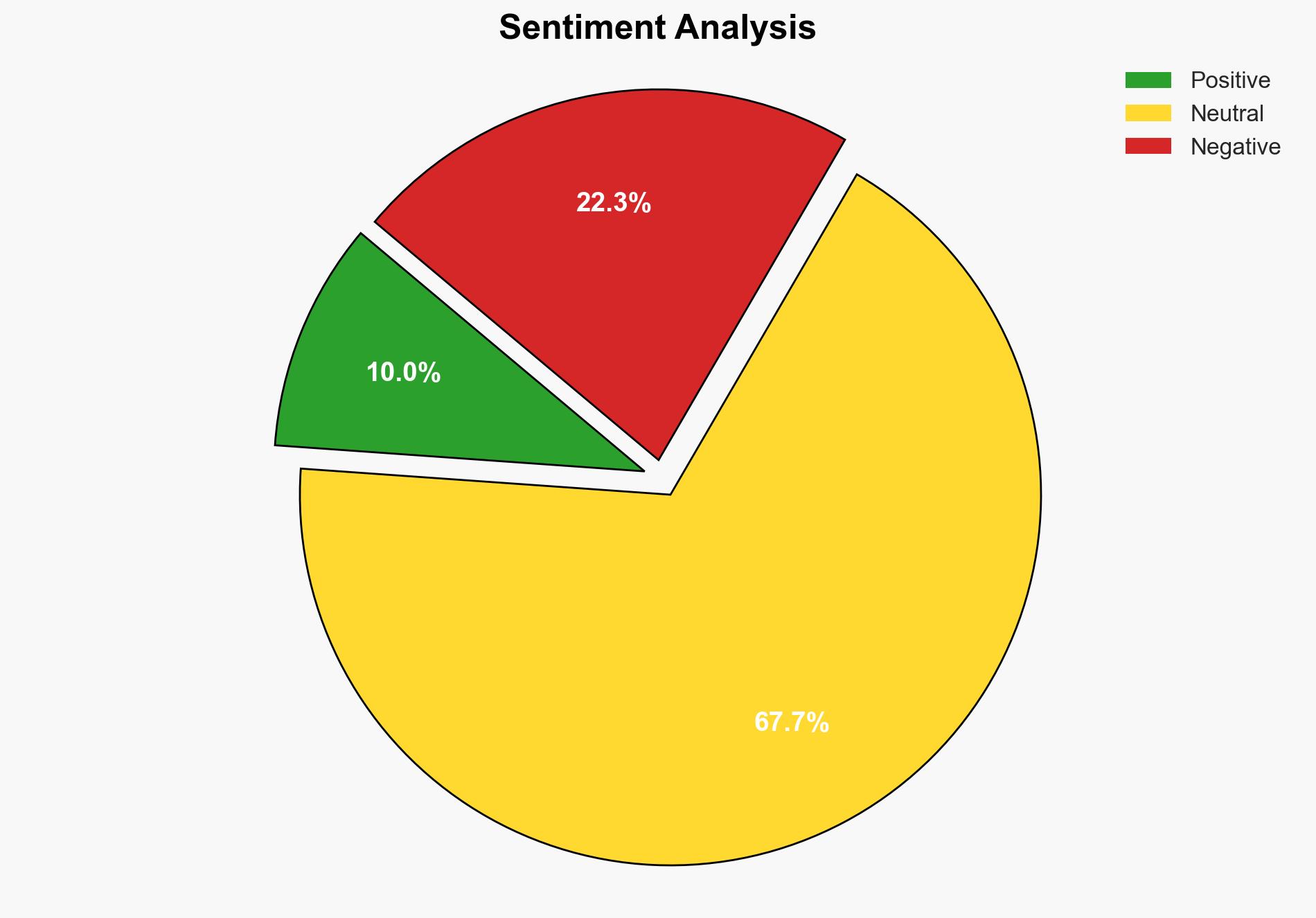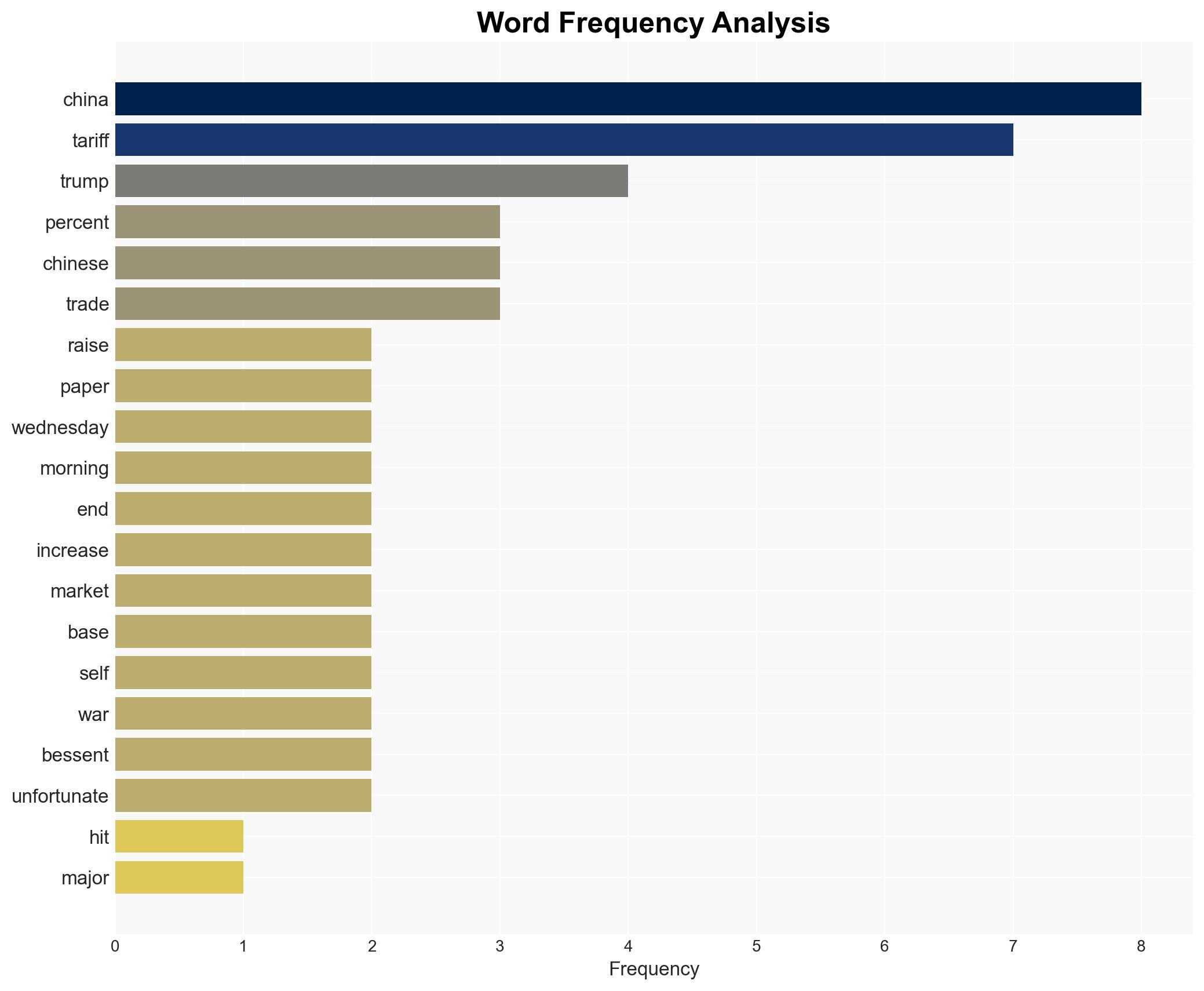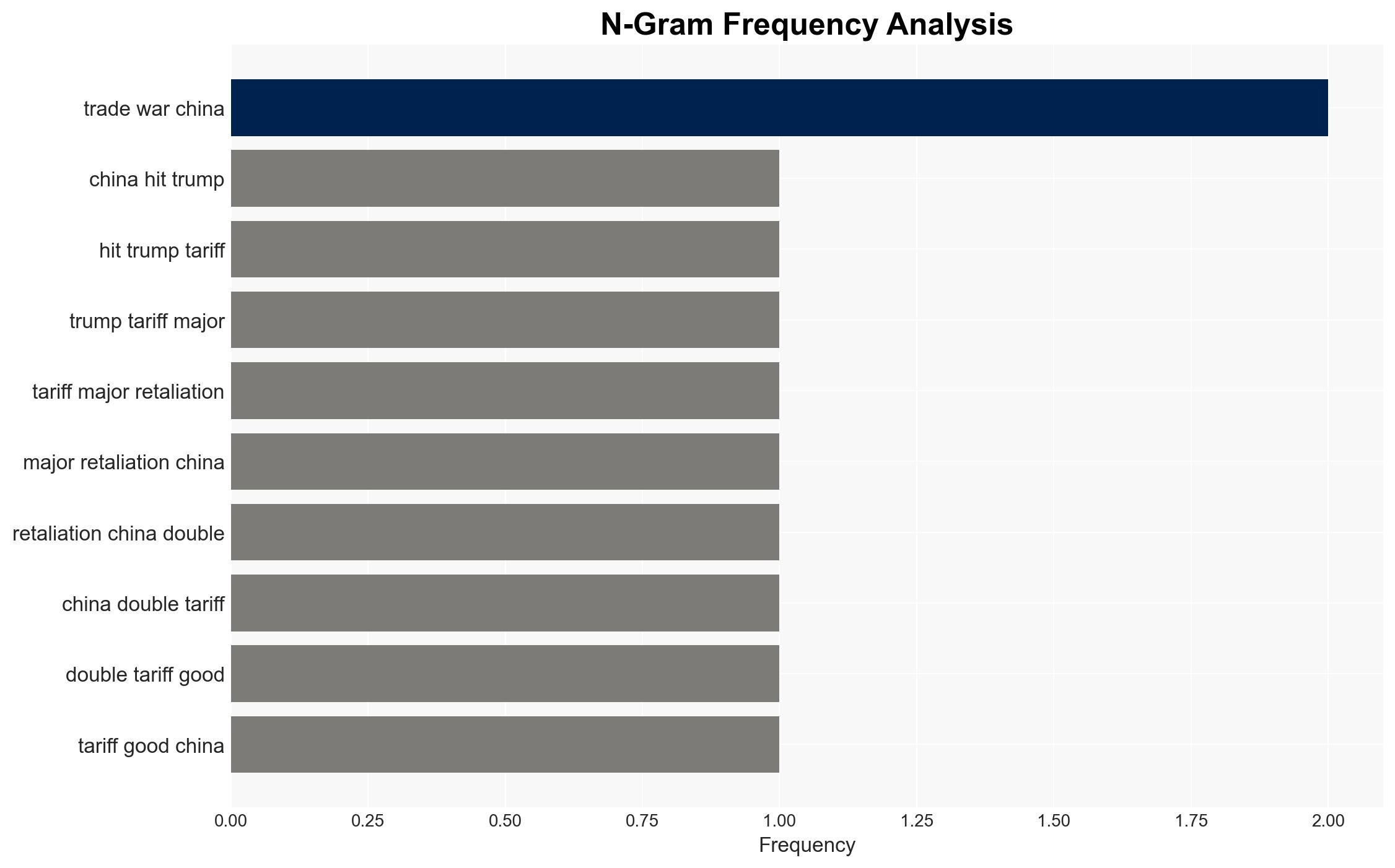China More Than Doubles Tariffs on US Amid Trump Trade War – The New Republic
Published on: 2025-04-09
Intelligence Report: China More Than Doubles Tariffs on US Amid Trump Trade War – The New Republic
1. BLUF (Bottom Line Up Front)
China has significantly escalated its trade retaliation against the United States by more than doubling tariffs on U.S. goods, increasing them from 34% to 84%. This move is in direct response to tariff hikes imposed by Donald Trump, which raised U.S. tariffs on Chinese imports to 104%. The situation has resulted in a full-blown trade war, causing global market instability, including a significant drop in Dow Futures. Immediate strategic actions are required to mitigate economic repercussions and stabilize international trade relations.
2. Detailed Analysis
The following structured analytic techniques have been applied for this analysis:
General Analysis
The escalation of tariffs between China and the United States represents a significant deterioration in bilateral trade relations. China’s decision to increase tariffs is a direct countermeasure to U.S. actions, reflecting a strategic stance to exert economic pressure. The Chinese government’s policy paper highlights their readiness to endure prolonged economic confrontation, suggesting a calculated approach to counter U.S. measures. The assertion that the trade relationship is “roughly balanced” contradicts U.S. claims and indicates differing perspectives on trade equity. The potential removal of Chinese companies from American stock exchanges, as suggested by Scott Bessent, could further exacerbate tensions.
3. Implications and Strategic Risks
The trade war poses several strategic risks, including:
- Economic Instability: Increased tariffs are likely to lead to higher consumer prices, inflationary pressures, and potential recessionary impacts in the U.S.
- Global Market Volatility: The trade conflict has already resulted in significant market fluctuations, with potential long-term impacts on global economic stability.
- National Security Concerns: Prolonged economic tensions could strain diplomatic relations and impact cooperative efforts on global security issues.
- Regional Stability: The trade war could influence regional alliances and economic partnerships, particularly in Asia-Pacific markets.
4. Recommendations and Outlook
Recommendations:
- Initiate diplomatic dialogues to de-escalate tensions and explore mutually beneficial trade agreements.
- Consider regulatory adjustments to mitigate domestic economic impacts, such as subsidies for affected industries.
- Enhance technological and organizational frameworks to support resilient supply chains and reduce dependency on single markets.
Outlook:
Best-case Scenario: Successful negotiations lead to a reduction in tariffs and stabilization of global markets.
Worst-case Scenario: Continued escalation results in severe economic downturns and prolonged market volatility.
Most Likely Outcome: Short-term economic disruptions with gradual progress towards negotiation and resolution.
5. Key Individuals and Entities
The report mentions significant individuals and organizations, including Donald Trump, Scott Bessent, and the Beijing Commerce Ministry. These entities play critical roles in the ongoing trade conflict and its potential resolution.





